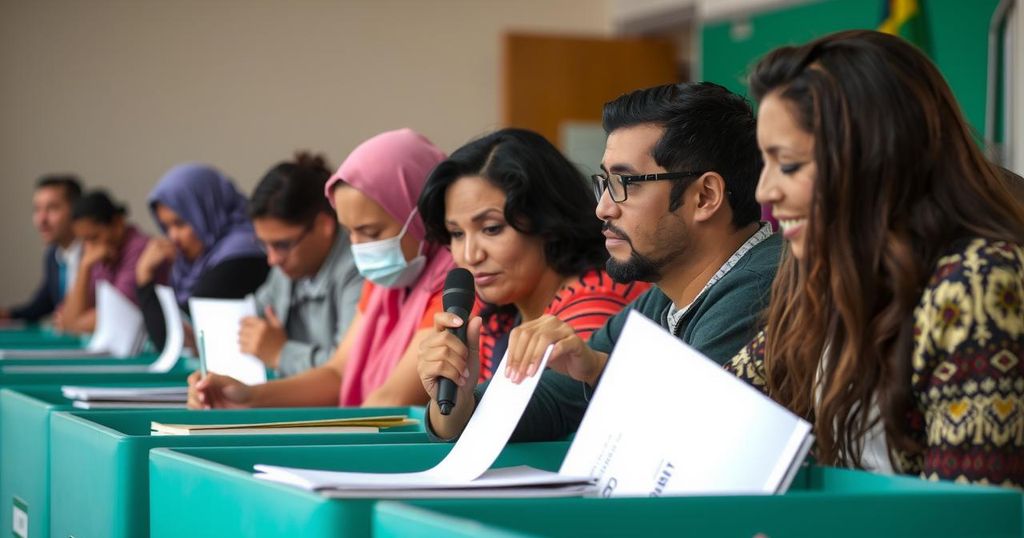World news
ANDRES MANUEL LOPEZ OBRADOR, ASIA, ASSOCIATED PRESS, BOLIVIA, CONSTITUTIONAL COURT, CORRUPTION, CUBA, DEMOCRACY, EL SALVADOR, EV, EVO MORALES, LATIN AMERICA, MARIS, MARISOL NOGALES, MEXICO, NORTH AMERICA, OPPOSITION, PHILIPPINES, POLITICS, SOUTH AMERICA, THE ASSOCIATED PRESS, TRADE RELATIONS, TRIBUNAL
Fatima Alavi
0 Comments
Bolivia’s Unconventional Judicial Elections: Impacts and Implications for Democracy
Bolivia conducts unique elections for its top judges, a practice not common anywhere else in the world. The latest election faced political tensions and criticism regarding the integrity and efficacy of the judiciary, reflecting broader concerns about democracy in the nation. The situation is being closely observed by other countries, notably Mexico, as they consider similar electoral processes for their judicial systems.
Bolivia uniquely conducts elections for its highest judicial positions, diverging from traditional judicial appointment processes seen around the world. Despite prohibitions on campaigning, candidates have found subtle ways to promote themselves in La Paz, illustrating a pervading apathy among voters regarding the candidates’ qualifications. The recent postponement of the elections has heightened tensions between President Luis Arce and his predecessor Evo Morales, with critics arguing that the current system has politicized the judiciary and diminished the integrity of the judicial process. This vote, set amidst allegations of power struggles and interference by the Constitutional Court, indicates broader implications for democracy in Bolivia and offers cautionary lessons for other nations, including Mexico, which is also considering judicial elections for the first time. The past two judicial elections have seen low engagement from voters, who are often confused by the lack of transparency surrounding candidates, reflecting a deeper concern regarding the legitimacy and independence of elected judges. The unfolding scenario highlights the struggles inherent in Bolivia’s unique electoral system and raises questions about the future of its judiciary and democracy.
Bolivia’s judicial elections are a definitive element of its public electoral landscape, distinctively allowing citizens to vote for judicial officials, a practice not mirrored elsewhere. Former President Evo Morales initially restructured the judicial system in 2009 to combat corruption, a theme echoed by current President Luis Arce in recent reforms. However, these changes have led to criticism regarding the political manipulation of the judiciary, making judicial appointments more about political allegiance than about merit. The electoral process, marked by controversy and suspicion, has eroded public trust and engagement, with elections characterized by low voter turnout and widespread sentiments of alienation from the political process. Furthermore, the rivalries between Morales’ faction and Arce’s administration illustrate ongoing political divisions that complicate the already challenged judicial ecosystem in Bolivia.
The controversial nature of Bolivia’s judicial elections reveals the inherent risks associated with politicizing judicial positions. As former alliances and current struggles intertwine, the judiciary’s independence remains under threat, raising critical concerns about democratic integrity. The potential for political bias in the judiciary unduly influences not only national governance but also sets a concerning precedent for surrounding nations, including Mexico, contemplating similar electoral systems. Ultimately, Bolivia’s experience serves as a pivotal case study for understanding the relationship between electoral processes and judicial efficacy in preserving democracy.
Original Source: abcnews.go.com




Post Comment